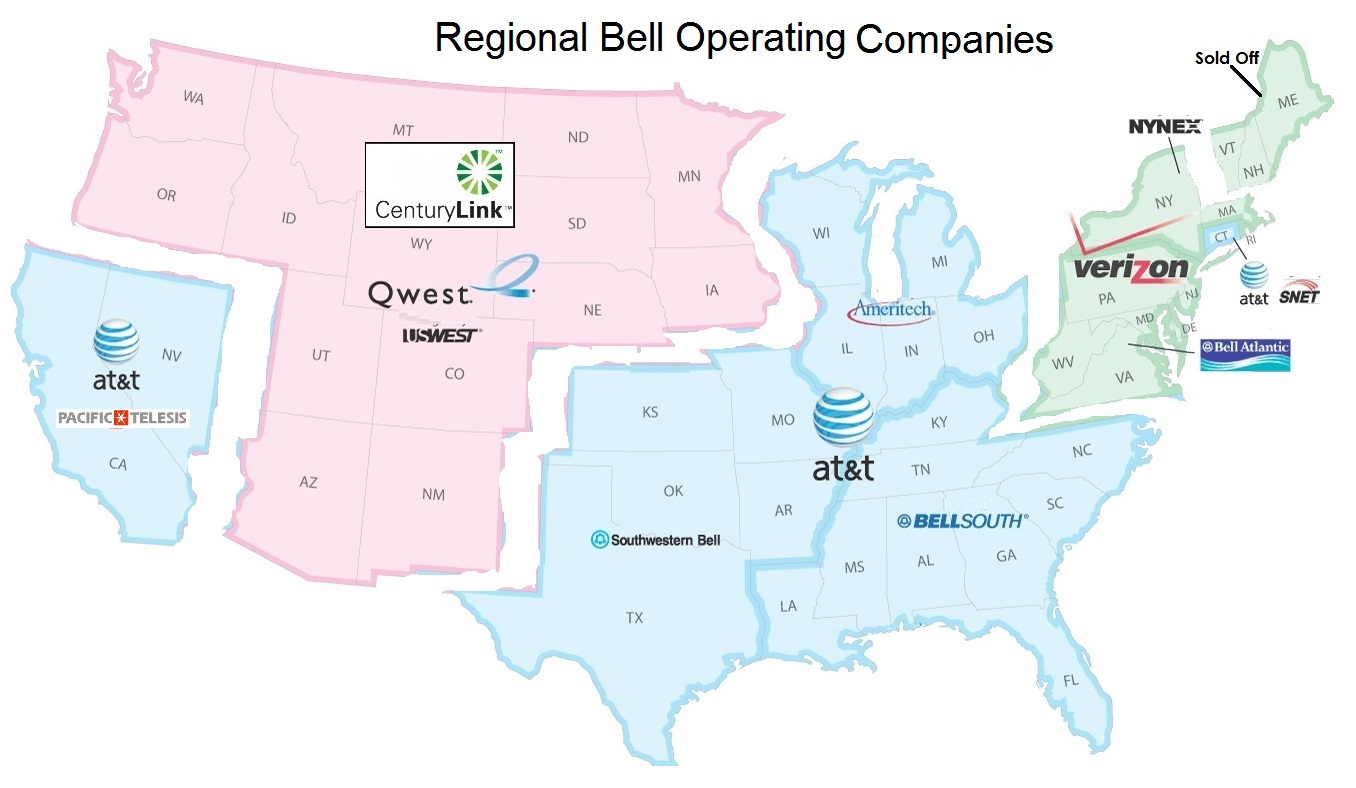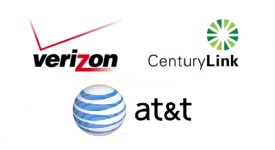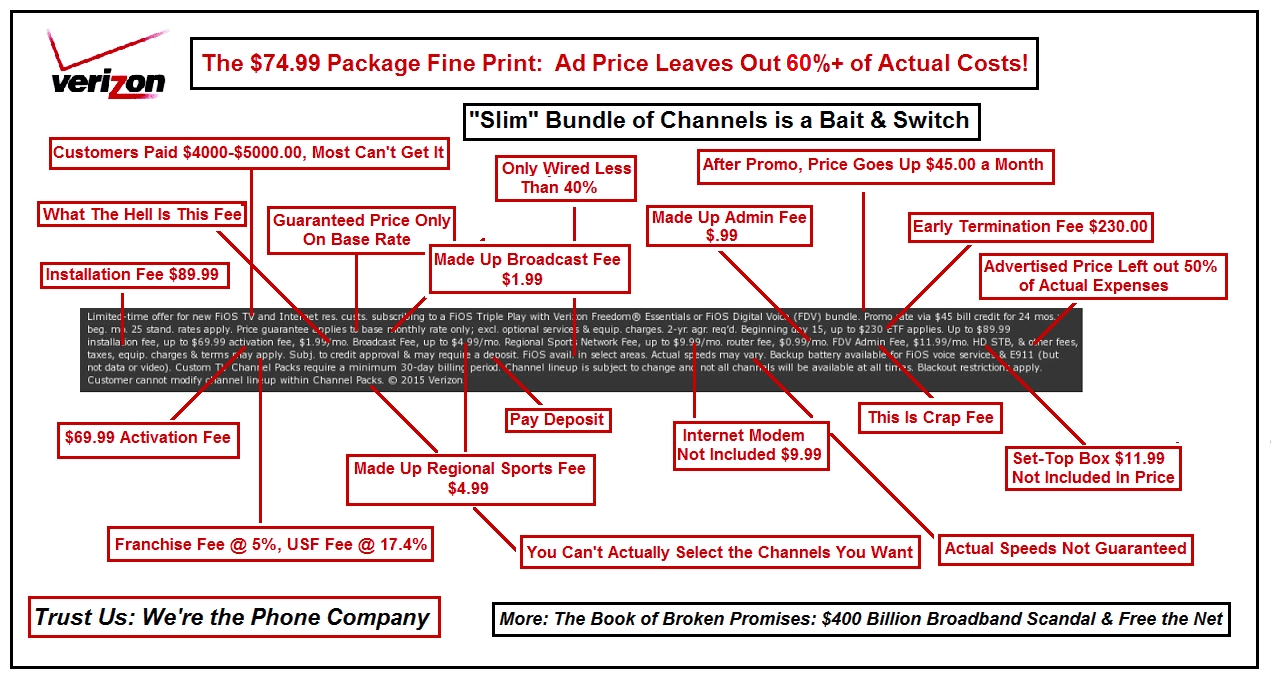
The Book of Broken Promises goes from the
1990s through September 2014 and lays out all of the broken promises
that were used to charge you more money for services you never got!

By the end of 2014, America will have been charged about $400 billion
by the local phone incumbents, Verizon, AT&T and CenturyLink, for a
fiber optic future that never showed up. And though it varies by state,
counting the taxes, fees and surcharges that you have paid every month
(many of these fees are actually revenues to the company or taxes on the
company that you paid), it comes to about $4000-$5000.00 per household
from 1992-2014, and that’s the low number.
By year-end of 2010, and based on the commitments made by the phone
companies in their press statements, filings on the state and federal
level, and the state-based ‘alternative regulation’ plans that were put
in place to charge you for broadband upgrades of the telephone company
wire in your home, business, as well as the schools and libraries —
America, should have been the world’s first fully fibered, leading edge
broadband nation.

In fact, in 1992, the speed of broadband, as detailed in state laws,
was 45 Mbps in both directions — by 2014, all of us should have been
enjoying gigabit speeds (1000 Mbps).
Instead, America is not number 1 or 2 or 5 or even 10th in the world in broadband.

In 1993, Pacific Bell, California, said it would spend $16 billion by
2000 and have 5.5 million homes wired with fiber optics. Bell Atlantic
controlled the East Coast states from New Jersey through Virginia and
claimed it would spend $11 billion on 8.75 million homes by 2000, while
Ameritech (which included Ohio, Indiana, Illinois, Michigan and
Wisconsin) stated it would have 6 million fiber optic lines by 2000.
Some states, like New Jersey, would have 100% of Verizon New Jersey’s
territory completed by 2010 with 45 Mbps services in both directions,
while SNET (Connecticut) said it would spend $4.5 billion and have 100%
completed by 2007. Ohio Bell, (now AT&T Ohio) claimed that 100% of
schools and libraries would be upgraded to fiber by 2000. And US West,
(now Centurylink) which controls many western states, like Wyoming,
Idaho, Colorado or North Dakota, told the public, regulators and
investors that it would start a major deployment of fiber optic
services, adding ½ million households a year.almost every company filed to offer millions of customers services by 2000.

Starting in 1991, there were discussions of whether the government
should build these networks, but the phone companies who controlled the
state-based utilities in every state, saw this as a new mountain of
money and said — just give us a little more profit via deregulation.At this time, the companies’ wires were still monopoly controlled and
the networks were closed to competition, so their profits were
constrained to 12-14% a year. But, within literally a year after the
laws were changed, the profits more than doubled to about 30%

The Bell companies were also able to take massive tax write-offs. From
1993-1995, the companies took $25 billion in depreciation write offs. as the ink was dry on the new laws, the companies knew they would never
be held accountable to fulfill these commitments to do these upgrades of
the state utility networks; nothing was built, nothing was upgraded. At the end of 2004, America was to have 86 million households upgraded. And
by 2004, the phone companies had collected about $200 billion from
customers in excess phone charges and tax perks. Instead of upgrading the old, copper, legacy utility networks to fiber
optics, ALL of the companies pulled a bait and switch and around 1998 or
later, rolled out ADSL over these aging copper wires. It was slow and
it was considered an inferior product.
